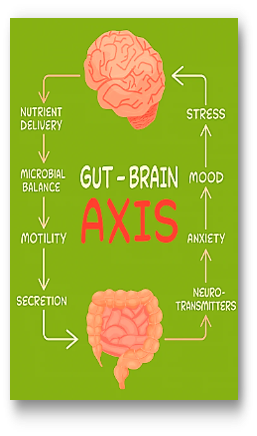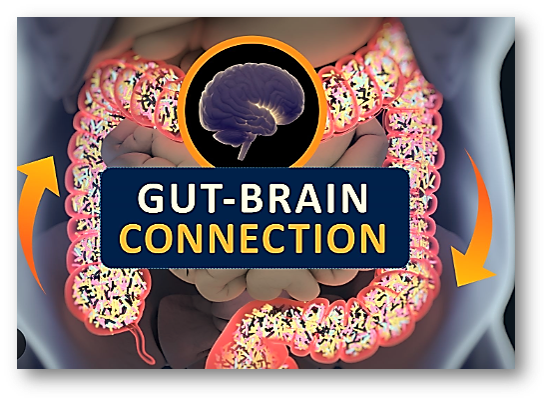ANXIETY AND STRESS!!
Anxiety symptoms can vary from person to person, but some common symptoms include feelings of fear, nervousness, and unease; physical symptoms such as a rapid heartbeat, sweating, and tense muscles; and behavioral symptoms such as avoiding certain situations and difficulty concentrating. If you are experiencing severe or persistent anxiety symptoms, it is important to seek help from a mental health professional. They can help you identify the cause of your anxiety and develop strategies to manage it.
Anxiety and stress are related but distinct emotional states. Stress is a physical and emotional response to a perceived threat or challenge. Both anxiety and stress can have negative effects on a person’s mental and physical well-being and can be managed through a variety of techniques such as therapy, medication, and lifestyle changes.
DIFFERENCE BETWEEN ANXIETY AND STRESS
Anxiety is a general term for several disorders that cause nervousness, fear, apprehension, and worry. These disorders alter how a person processes emotions and behaves, also causing physical symptoms. Stress, on the other hand, is a physical and emotional response to a perceived threat or challenge, such as a deadline or an argument. It is a normal part of life that can help individuals rise to meet challenges.
Anxiety is a future-oriented emotion, it is a worry or fear about something that may happen. Stress, on the other hand, is a response to something that is happening now or has already happened. Anxiety can be a chronic condition while stress is usually short-term.
Both anxiety and stress can have negative effects on a person’s mental and physical well-being and can be managed through a variety of techniques such as therapy, medication, and lifestyle changes.
PATHOPHYSIOLOGY OF ANXIETY OR STRESS!!

The clinical picture and pathophysiology of anxiety and stress involve a complex interplay between the brain, the body, and the environment.
Anxiety
Anxiety disorders are characterized by excessive and persistent worry or fear about a variety of situations or events. These disorders are associated with changes in the brain, including altered activity in regions that regulate emotions and the stress response, such as the amygdala and the hippocampus. Anxiety disorders are also associated with changes in the levels of certain neurotransmitters, such as serotonin and norepinephrine, which play a role in regulating mood and the stress response.
Stress
Stress is a physical and emotional response to a perceived threat or challenge. The body’s stress response, also known as the “fight or flight” response, is activated when the brain perceives a threat. This response is mediated by the release of stress hormones, such as adrenaline and cortisol, which prepare the body to respond to the perceived threat. Chronic stress can lead to changes in the brain and the body, such as the increased risk of depression, anxiety, and cardiovascular disease, as well as changes in the immune and endocrine systems.
Overall, both anxiety and stress are associated with changes in brain chemistry, hormonal balance, and physiological responses that can have negative effects on mental and physical well-being if not properly addressed.
CORRELATION OF UPSET STOMACH WITH ANXIETY OR STRESS!!
There is a strong correlation between an upset stomach and anxiety or stress. Stress and anxiety can cause a variety of digestive symptoms, including nausea, stomach cramps, diarrhea, and constipation. These symptoms are caused by the release of stress hormones, such as cortisol and adrenaline, which can affect the muscles of the digestive tract, slowing down or speeding up the process of digestion. Stress and anxiety can also affect the production of stomach acid and digestive enzymes, which can further disrupt the digestive process.
Stress and anxiety can also lead to changes in eating habits, such as overeating or not eating enough, which can further contribute to digestive symptoms. Additionally, people who experience anxiety or stress may also be more likely to develop other digestive conditions, such as irritable bowel syndrome (IBS) or ulcers.
If you have an upset stomach with anxiety and stress, it’s important to talk to your healthcare provider about your symptoms, as these symptoms may be related to other underlying issues that need to be addressed. You might also want to try some stress-relieving activities like deep breathing, meditation, or yoga, and make some lifestyle changes such as eating a balanced diet, getting enough sleep, and regular exercise, as these may help to alleviate the symptoms of stress and anxiety as well as stomach upset.
CONSTIPATION DUE TO ANXIETY OR STRESS!!

It is possible to experience constipation due to anxiety or stress. Stress and anxiety can affect the muscles of the digestive tract, slowing down the process of digestion, which can lead to constipation. Stress hormones such as cortisol can also affect the muscles in the intestines, causing them to contract more slowly or less effectively, which can further contribute to constipation.
Additionally, people who experience anxiety or stress may also be more likely to develop other digestive conditions, such as irritable bowel syndrome (IBS), which is a common cause of constipation. People who have IBS may experience symptoms such as abdominal pain, bloating, and changes in bowel habits, including constipation.
It’s also worth noting that people who are anxious or stressed may also change their eating and drinking habits, leading to a lack of fiber and fluids in the diet, which can contribute to constipation.
If you are experiencing constipation along with anxiety or stress, it’s important to talk to your healthcare provider. They may recommend changes in your diet, lifestyle, or medication to help relieve constipation, as well as therapy or medication to manage anxiety or stress.
UPSET STOMACH AND REGULAR STRESS OR ANXIETY!!

There are several ways to treat an upset stomach that is due to regular stress or anxiety, including:
Relaxation techniques:
Practice deep breathing, progressive muscle relaxation, or yoga, which can help reduce physical symptoms of anxiety and stress, including an upset stomach.
Exercise:
Regular physical activity can help release endorphins, which are chemicals in the brain that act as natural painkillers and can improve mood.
Eating a healthy diet:
Consuming a diet that is rich in fruits, vegetables, and whole grains, and low in processed foods can help improve digestion and reduce stomach upset.
Getting enough sleep:
Sleep is important for overall health and well-being, and lack of sleep can exacerbate symptoms of stress and anxiety, including stomach upset.
Medications:
Over-the-counter antacids can help neutralize stomach acid and reduce discomfort, and probiotics can help balance the gut’s microbiome. In some cases, your healthcare provider may recommend other medications such as antispasmodics, anti-anxiety medication, or antidepressants.
Therapy:
Cognitive Behavioral Therapy (CBT) can help individuals identify and change negative thought patterns and behaviors associated with anxiety and stress. Mindfulness-based therapies and acceptance and commitment therapy (ACT). That can also help individuals learn to focus on the present moment. Accept difficult thoughts and feelings without becoming overwhelmed by them.
It’s important to note that, it is important to talk to your healthcare provider.If your upset stomach is caused by stress or anxiety as they can also be symptoms of other underlying conditions.
MYTHS ABOUT STRESS OR ANXIETY!!
There are several myths about stress and anxiety that are commonly held but not scientifically proven:
Myth: Stress and anxiety are not real medical conditions.
Fact: Stress and anxiety are real medical conditions that can have significant effects on a person’s mental and physical well-being.
Myth: Only weak people get anxiety or stress.
Fact: Anxiety and stress can affect anyone, regardless of their strength or weakness.
Myth: Stress and anxiety can be cured by just thinking positively.
Fact: While a positive attitude can help, stress and anxiety often require professional treatment. Such as therapy or medication to manage effectively.
Myth: Stress and anxiety are the same thing.
Fact: While they are related, stress and anxiety are distinct emotional states. Stress is a physical and emotional response to a perceived threat or challenge. While anxiety is a feeling of worry, unease, or fear about something that may happen in the future.
Myth: You can get rid of all stress in your life.
Fact: Stress is a normal part of life. It is not possible or healthy to eliminate all stress from your life.
Myth: You can’t do anything about stress and anxiety.
Fact: There are many effective treatments and coping strategies for managing stress and anxiety, including therapy, medication, and lifestyle changes.
It’s important to seek accurate information and professional help if you are experiencing symptoms of stress or anxiety. It’s important to note that myths about stress and anxiety can prevent people from seeking help and getting the treatment they need.
KEYWORDS:
REFERENCES:
https://onlinelibrary.wiley.com/doi/abs/10.1002/1520-6394(2000)12:4%3C189::AID-DA1%3E3.0.CO;2-X
https://apps.dtic.mil/sti/pdfs/ADA113564.pdf


Pingback: HORMONES MAKE YOU FALL IN LOVE OR HATE!! - Life Biologs
Pingback: PLATELET COUNTS ARE A CAUSE OF CONCERN!! - Life Biologs
Pingback: INDIGESTION ISSUE AND CURE!! - Life Biologs